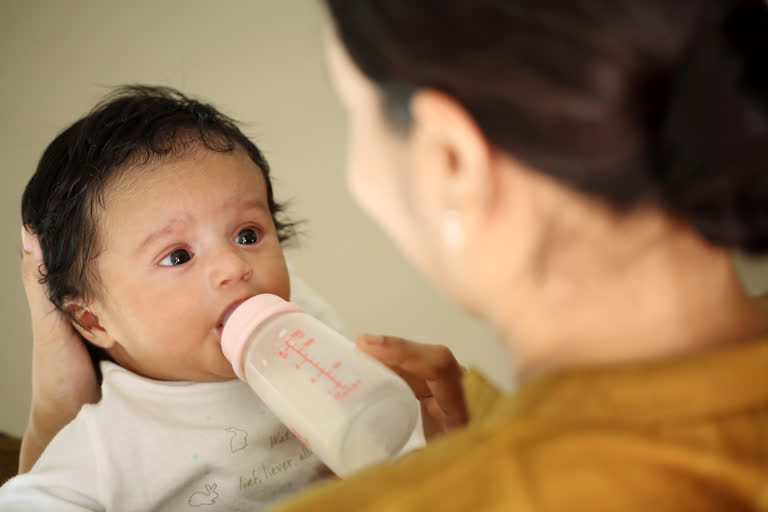For the first six months, a baby completely depends on his/her mother’s milk, which provides them with complete nourishment. But after six months, mother’s milk is not enough for the proper physical and mental development of the baby and therefore, other foods are given to them. Dr. Latika Joshi, Senior Pediatrician in Dehradun states that for the complete development of the child, the right food and in the right amount is necessary.
Baby’s Diet According To Age
- 0 to 6 Months
Dr. Latika Joshi says that only mother's milk should be given to the baby for the first six months. Breast Milk contains proteins, all the vitamins, minerals and other essential nutrients, which are sufficient for the baby. Also, the digestive system of the baby during this time is very delicate, due to which no other foods should be given to the baby other than breast milk. But during this time, it is very important for the mother to eat foods rich in nutrients because the baby’s nourishment solely depends on her.
- 7 to 8 Months
After six months, the baby’s digestive system gradually begins to work more efficiently and light food can be digested by him/her.
Dr. Joshi says that this is the very reason why a popular Indian traditional celebration of 'Annaprashan' (the day when the baby eats something for the first time) is celebrated at this age. Initially, the baby should be given only a liquid diet, so that there is not much load on the baby’s digestive system and the right nutrients are obtained by them. For this, apart from milk, lentil water/soup, clear vegetable soup, fresh fruit juice and rice water can be given.
- 7 to 12 Months
From the seventh month, the baby’s digestive system starts getting habitual of digesting foods other than mother’s milk but is still not strong enough to digest foods such as chapati and vegetables like adults. However, for better growth and development, his/her body requires more nutrients, in which case mashed and semi-solid food can be given to them. Chapati can be mashed with dal or vegetables and fed to the baby. Apart from this, khichdi, barley or wheat halwa, mashed paneer, mashed and boiled vegetables too can be fed.
What Not To Give To a Baby?
Dr. Joshi explains that it is very important to focus on what food is being given to the baby for the first 12 months since his/her body is quite weak at this age and any kind of health condition can get serious or complicated. Apart from this, it is also important to keep a close eye on your baby’s activities and behaviour and get him/her checked regularly by a paediatrician. There are also some food items that should be avoided during this time period.
- Honey
Although in many parts of India, it is a tradition of giving honey in syrup form to the newborns. But, doctors believe that at times honey may contain bacteria that can cause a rare disease called infant botulism. Apart from this, honey is also a type of sugar, which can harm the baby's health. - Eggs, Fish and Meat
The baby should not be given eggs or meat for about 10 months after birth because it can be hard to digest for the baby and can heavily affect the digestive system. - Do Not Give Dry Fruits
Since the digestive power of the baby is weak, it is very important that during the first 12 months, dry fruits like almonds, cashew, etc. should not be fed to the baby. But during winters, almonds can be ground on a stone with a little water and can be given to the baby. - Salt
Babies should not be given too much salt in food. Salt should be avoided as far as possible as it can harm the baby's kidneys. Infants under the age of one year should eat less than one gram of salt (0.4 gram sodium) a day.
- Sugar
You should also avoid feeding sugar-loaded foods to the babies. Their milk or any food item should contain as little amount of sugar as possible.
Dr. Joshi also says that it is better to feed the baby fresh homemade food as it is better for their health. You must avoid giving them baby food, canned juice or soups or any other ready-to-eat foods.



